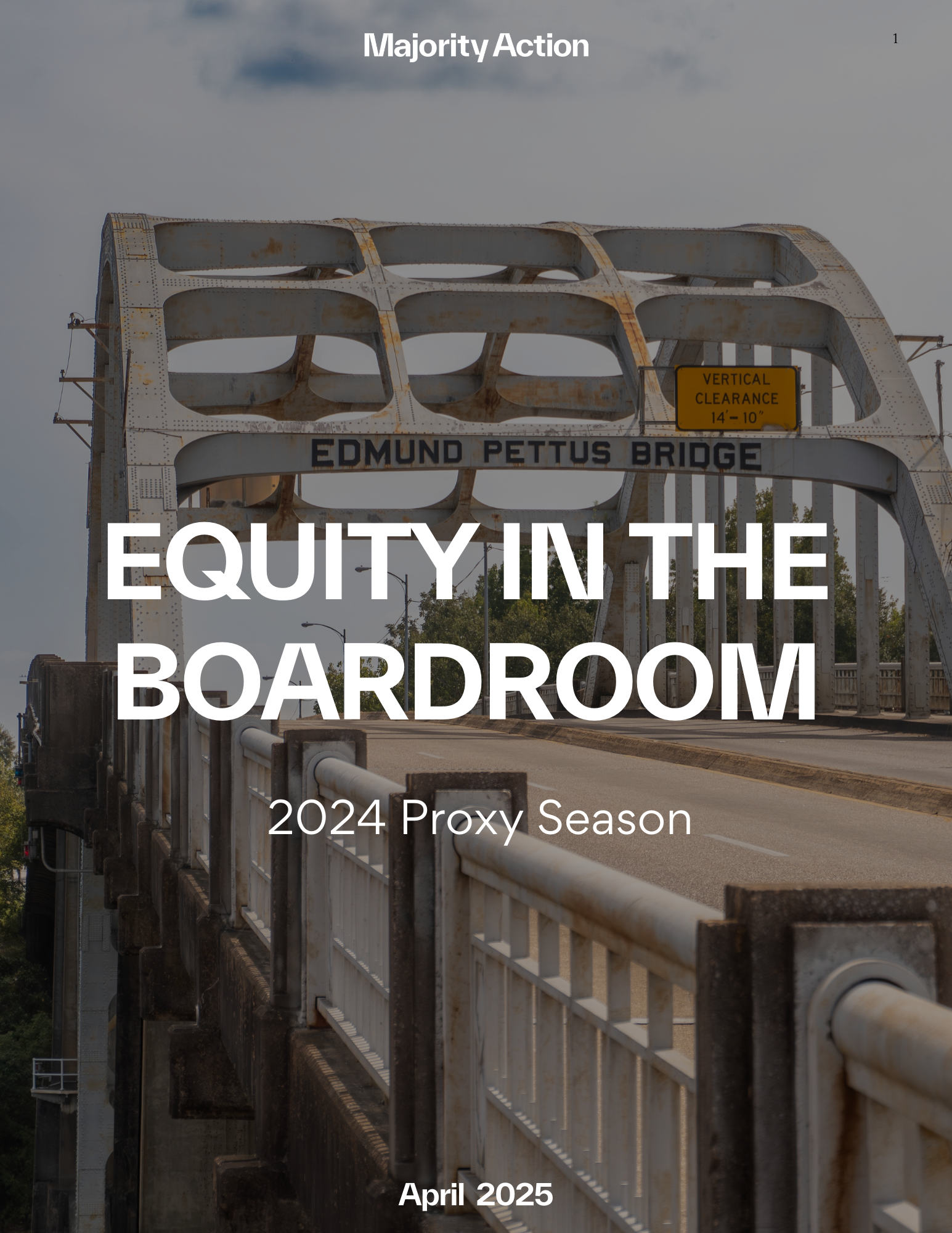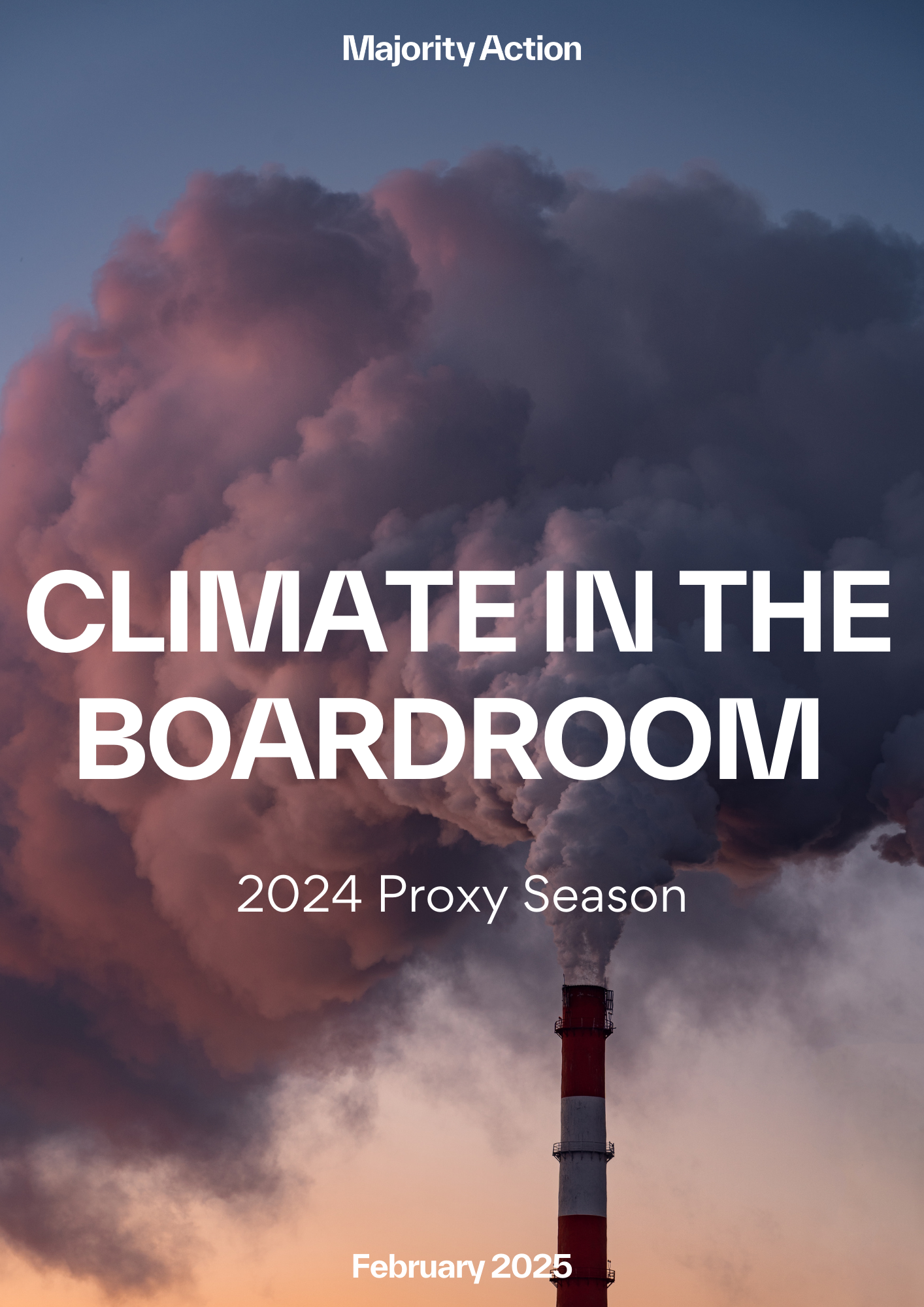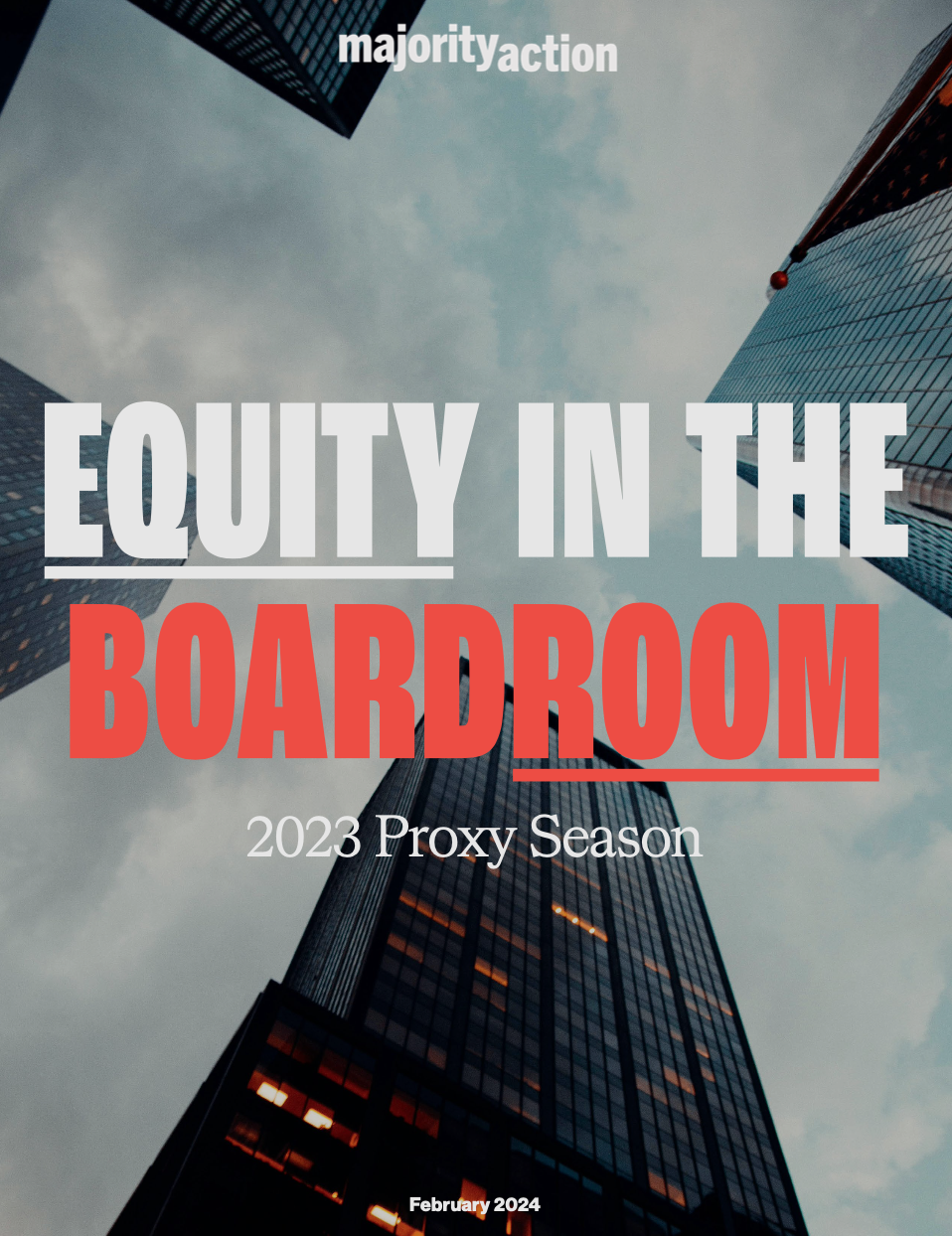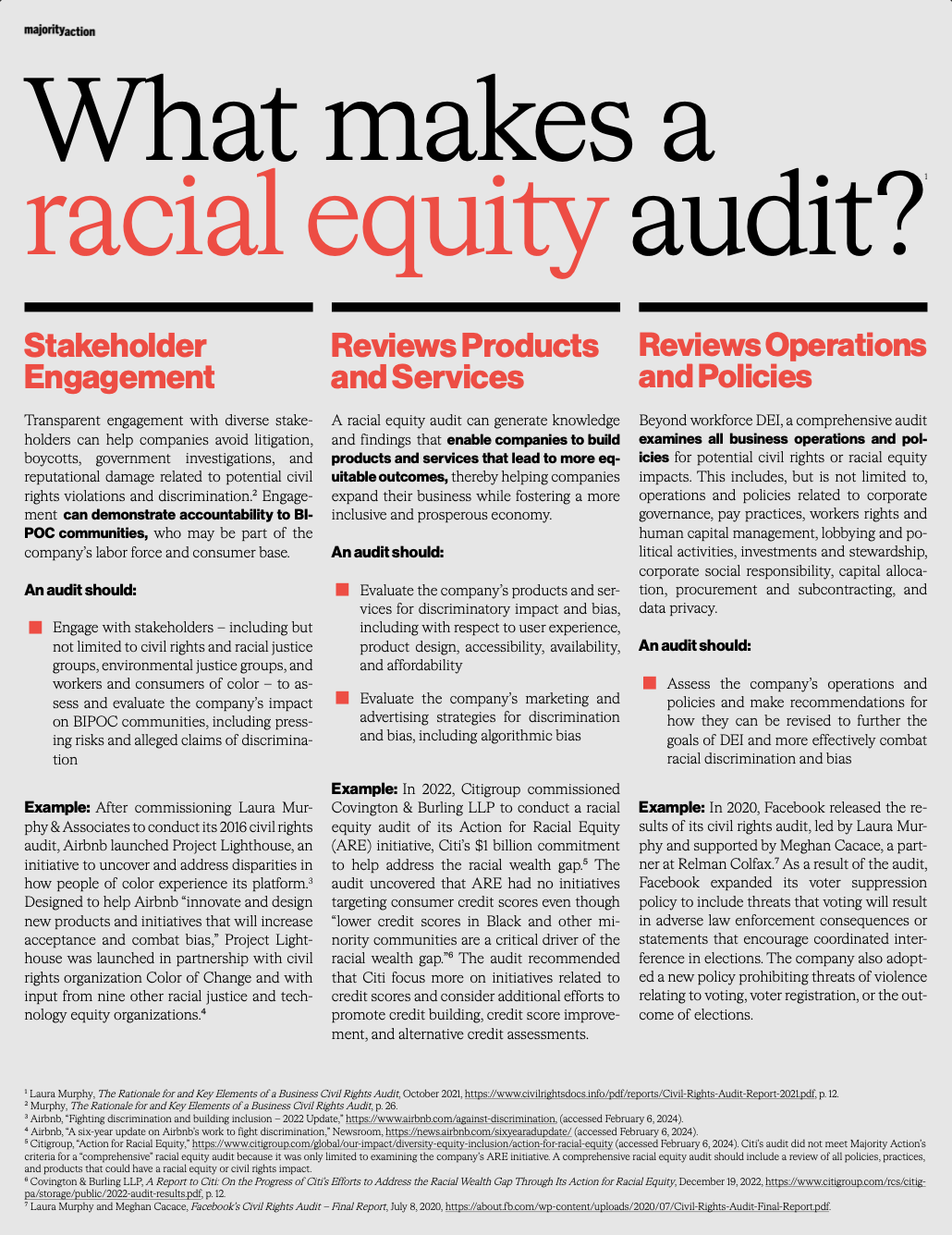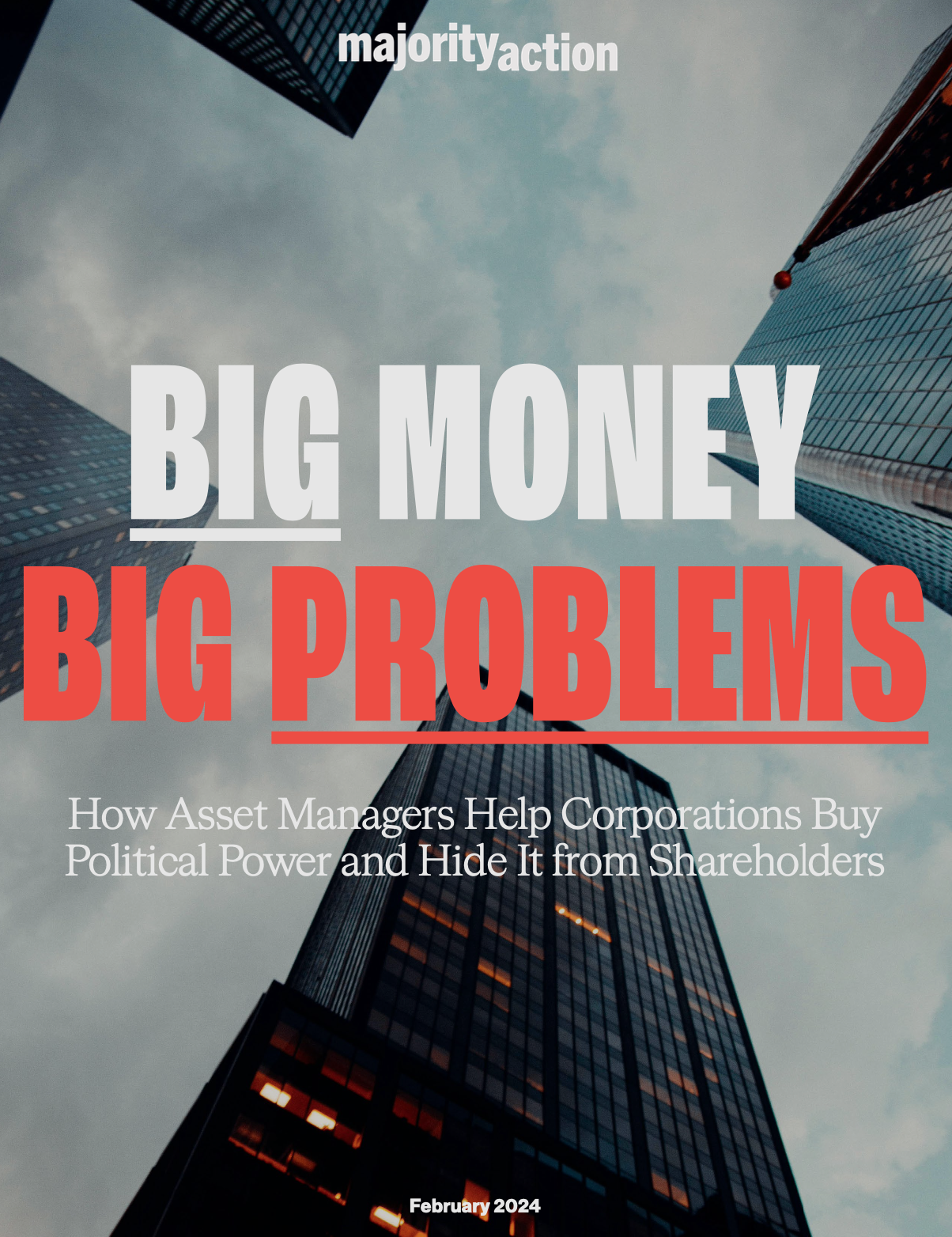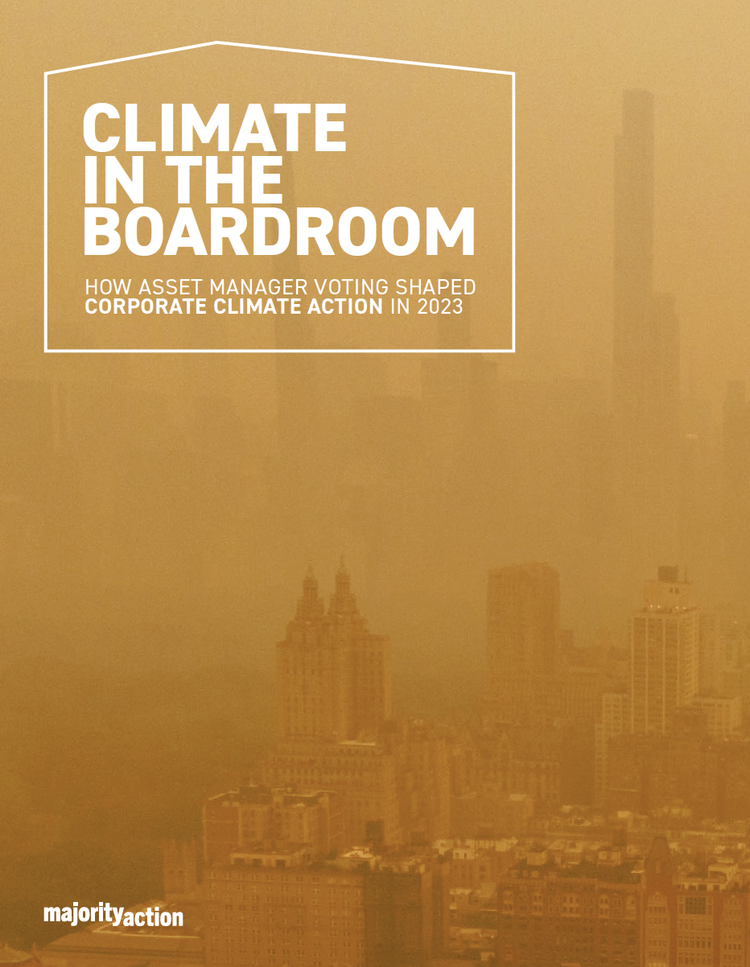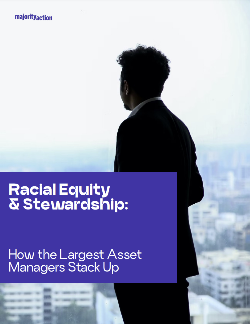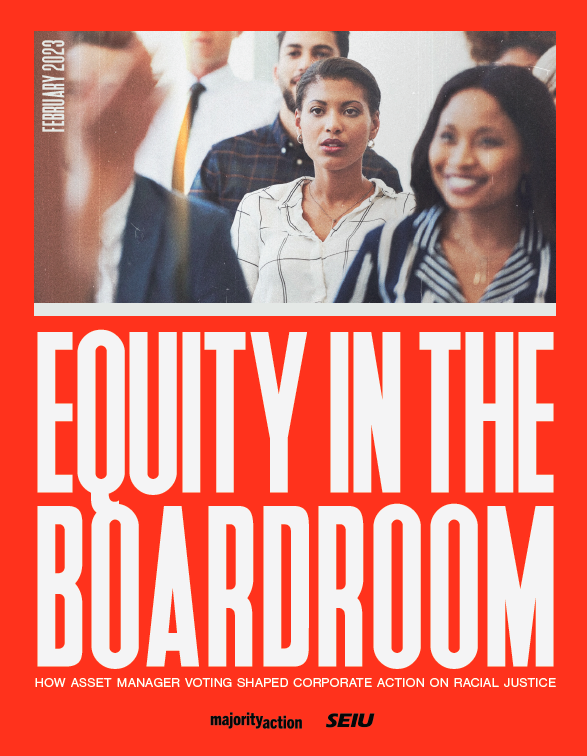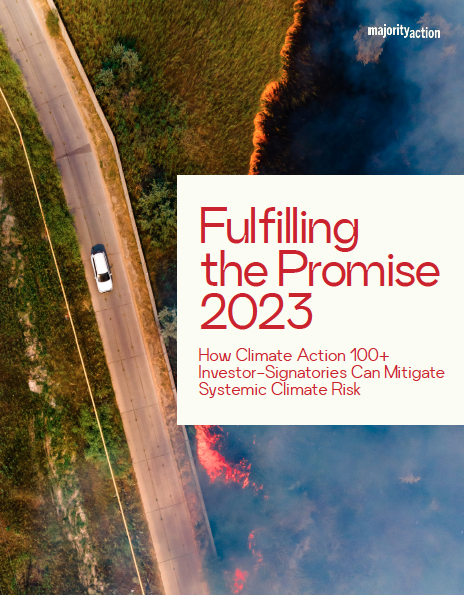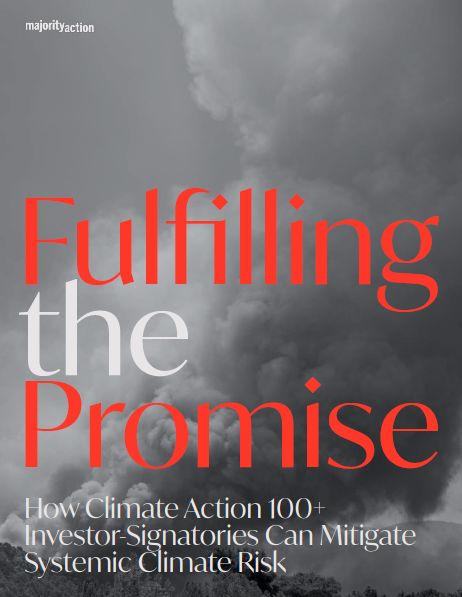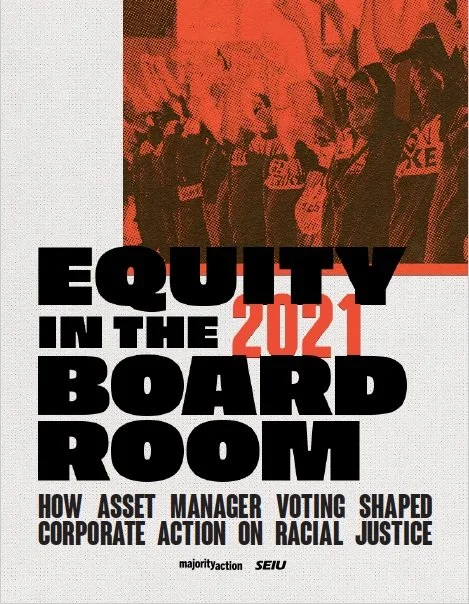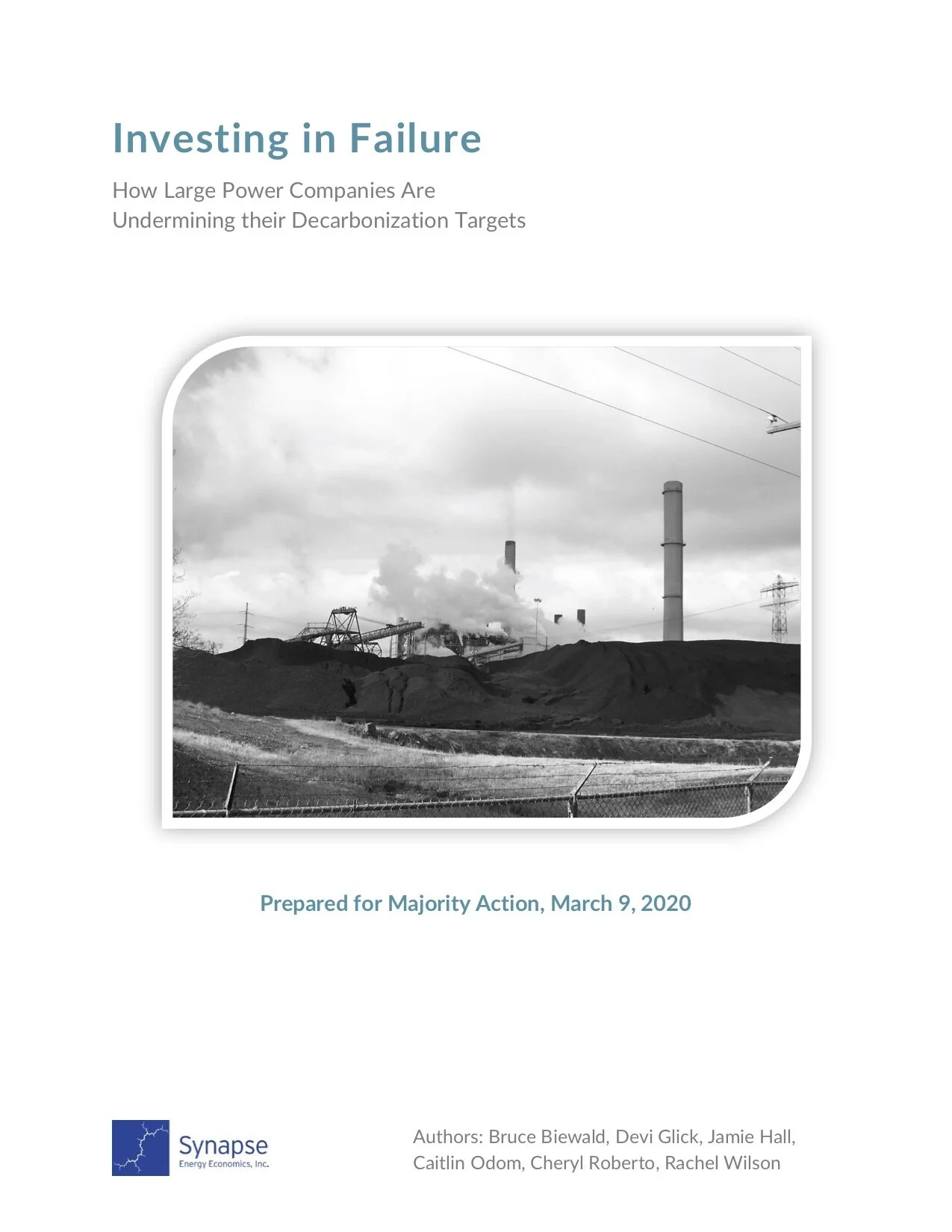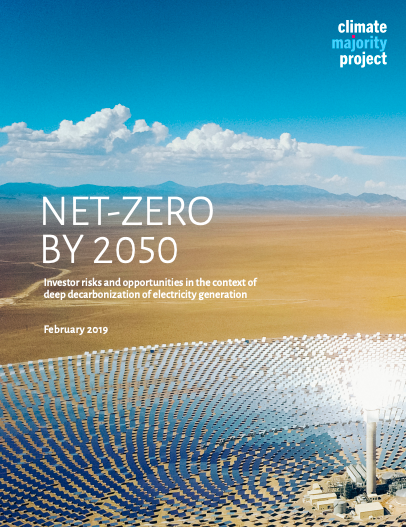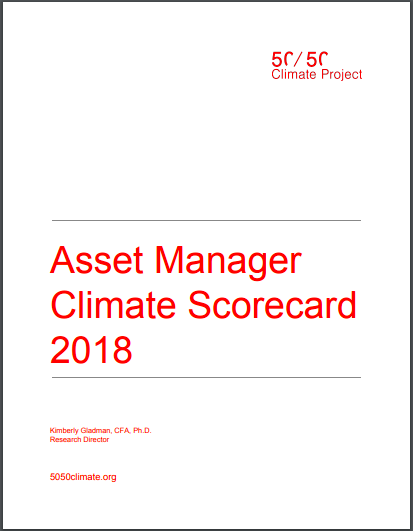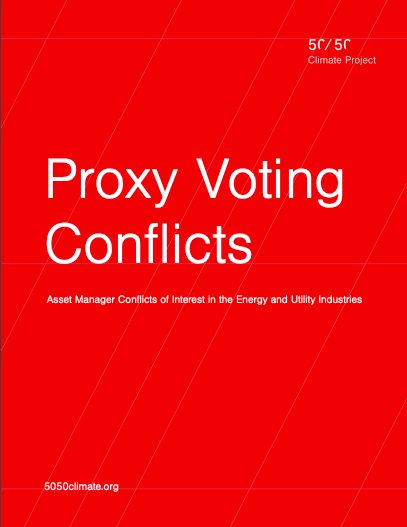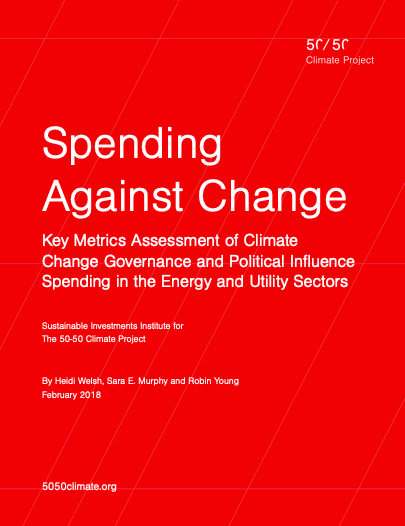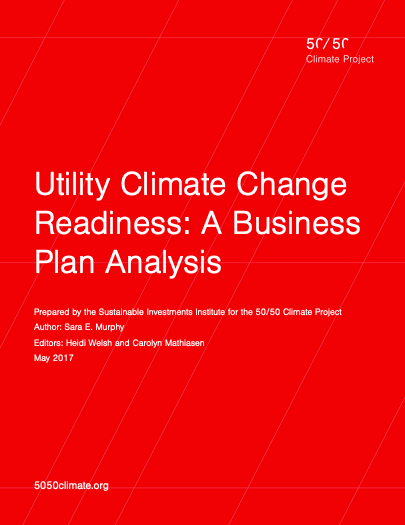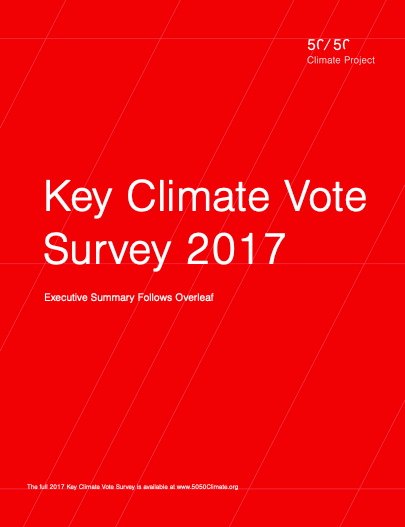Research
Below are MA's Research Reports. For SEC Filings 2020 and prior, click here
AI Accountability
Full Report
Emerging Technologies, Evolving Responsibilities: Why Investors Must Act to Mitigate AI’s System-Level Impacts
Report - September 2025: This Report highlights how unprecedented AI development is creating non-diversifiable, system-level risks that threaten long-term returns and shared prosperity, and presents actionable steps universal owners can take to adopt responsible AI guardrails and protect long-term value.
2025
-
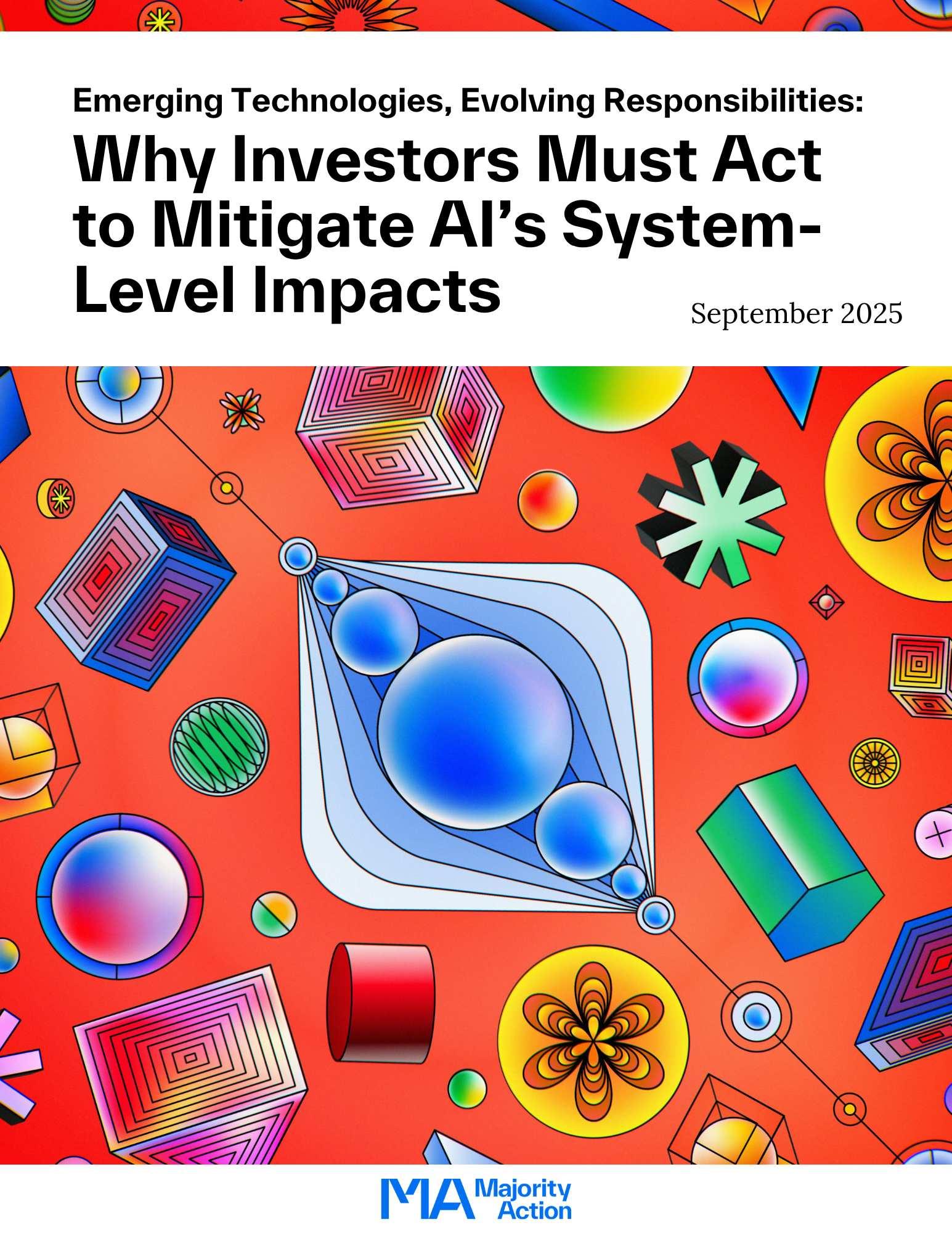
Emerging Technologies, Evolving Responsibilities: Why Investors Must Act to Mitigate AI’s System-Level Impacts
Report - September 2025: Emerging Technologies, Evolving Responsibilities: Why Investors Must Act to Mitigate AI’s System-Level Impacts highlights how unprecedented AI development is creating non-diversifiable, system-level risks that threaten long-term returns and shared prosperity, and presents actionable steps universal owners can take to adopt responsible AI guardrails and protect long-term value.
-
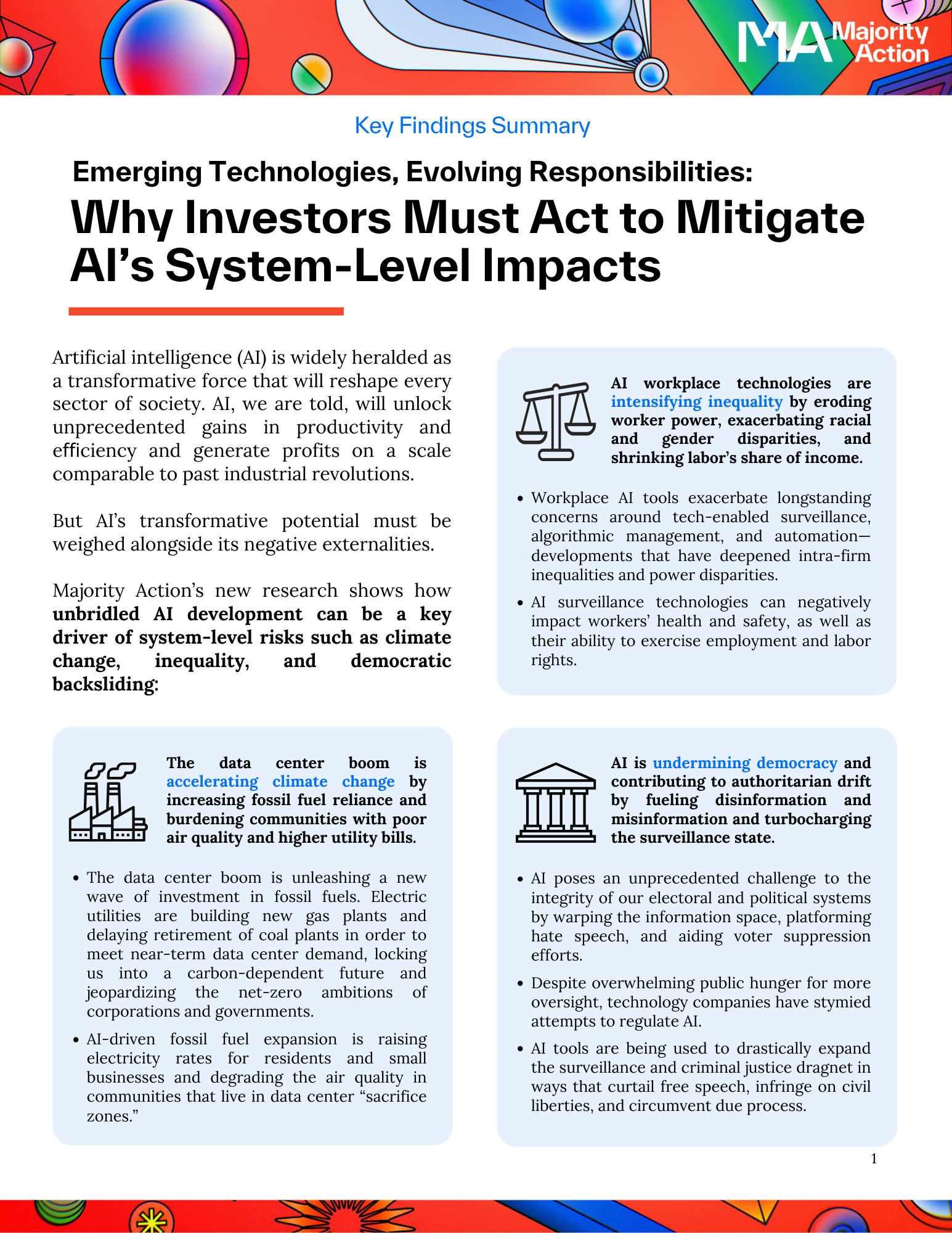
Emerging Technologies, Evolving Responsibilities: Why Investors Must Act to Mitigate AI’s System-Level Impacts
Brief - September 2025: This short brief highlights the key findings of Emerging Technologies, Evolving Responsibilities, outlining AI’s system-level risks and their implications for investors. It highlights actionable steps universal owners can take to adopt responsible AI guardrails and protect long-term value.
-

Gold
What should we know about the services you provide? Better descriptions result in more sales.
-

Platinum
What should we know about the services you provide? Better descriptions result in more sales.
Report - September 2025: This Report highlights how unprecedented AI development is creating non-diversifiable, system-level risks that threaten long-term returns and shared prosperity, and presents actionable steps universal owners can take to adopt responsible AI guardrails and protect long-term value.
AI Accountability
Full Report
Emerging Technologies, Evolving Responsibilities: Why Investors Must Act to Mitigate AI’s System-Level Impacts
Report - September 2025: This Report highlights how unprecedented AI development is creating non-diversifiable, system-level risks that threaten long-term returns and shared prosperity, and presents actionable steps universal owners can take to adopt responsible AI guardrails and protect long-term value.
AI Accountability
Full Report
Report - September 2025: Emerging Technologies, Evolving Responsibilities: Why Investors Must Act to Mitigate AI’s System-Level Impacts highlights how unprecedented AI development is creating non-diversifiable, system-level risks that threaten long-term returns and shared prosperity, and presents actionable steps universal owners can take to adopt responsible AI guardrails and protect long-term value.
AI Accountability
Full Report
Emerging Technologies, Evolving Responsibilities: Why Investors Must Act to Mitigate AI’s System-Level Impacts
Report - September 2025: Emerging Technologies, Evolving Responsibilities: Why Investors Must Act to Mitigate AI’s System-Level Impacts highlights how unprecedented AI development is creating non-diversifiable, system-level risks that threaten long-term returns and shared prosperity, and presents actionable steps universal owners can take to adopt responsible AI guardrails and protect long-term value.
AI Accountability
Full Report
Emerging Technologies, Evolving Responsibilities: Why Investors Must Act to Mitigate AI’s System-Level Impacts
Report - September 2025: Emerging Technologies, Evolving Responsibilities: Why Investors Must Act to Mitigate AI’s System-Level Impacts highlights how unprecedented AI development is creating non-diversifiable, system-level risks that threaten long-term returns and shared prosperity, and presents actionable steps universal owners can take to adopt responsible AI guardrails and protect long-term value.
Emerging Technologies, Evolving Responsibilities: Why Investors Must Act to Mitigate AI’s System-Level Impacts
·
Emerging Technologies, Evolving Responsibilities: Why Investors Must Act to Mitigate AI’s System-Level Impacts ·
AI Accountability
Full Report
Report - September 2025: Emerging Technologies, Evolving Responsibilities: Why Investors Must Act to Mitigate AI’s System-Level Impacts highlights how unprecedented AI development is creating non-diversifiable, system-level risks that threaten long-term returns and shared prosperity, and presents actionable steps universal owners can take to adopt responsible AI guardrails and protect long-term value.
Emerging Technologies, Evolving Responsibilities: Why Investors Must Act to Mitigate AI’s System-Level Impacts
·
Emerging Technologies, Evolving Responsibilities: Why Investors Must Act to Mitigate AI’s System-Level Impacts ·
AI Accountability
Full Report
Report - September 2025: Emerging Technologies, Evolving Responsibilities: Why Investors Must Act to Mitigate AI’s System-Level Impacts highlights how unprecedented AI development is creating non-diversifiable, system-level risks that threaten long-term returns and shared prosperity, and presents actionable steps universal owners can take to adopt responsible AI guardrails and protect long-term value.
Research
Below are MA's Research Reports. For SEC Filings 2020 and prior, click here
AI Accountability
Full Report
Emerging Technologies, Evolving Responsibilities: Why Investors Must Act to Mitigate AI’s System-Level Impacts
Report - September 2025: Emerging Technologies, Evolving Responsibilities: Why Investors Must Act to Mitigate AI’s System-Level Impacts highlights how unprecedented AI development is creating non-diversifiable, system-level risks that threaten long-term returns and shared prosperity, and presents actionable steps universal owners can take to adopt responsible AI guardrails and protect long-term value.
AI Accountability
Key Findings Summary
Emerging Technologies, Evolving Responsibilities: Why Investors Must Act to Mitigate AI’s System-Level Impacts
Brief - September 2025: This short brief highlights the key findings of Emerging Technologies, Evolving Responsibilities, outlining AI’s system-level risks and their implications for investors. It highlights actionable steps universal owners can take to adopt responsible AI guardrails and protect long-term value.
Equity in the Boardroom
Equity in the Boardroom: 2024 Proxy Season
Report - April 2025. This report analyzes how the Big Four asset managers—BlackRock, State Street, Vanguard, and Fidelity (plus Geode)—voted on 70 key shareholder proposals related to equity and transparency, revealing stark contrasts with major asset managers and public pension funds, and highlighting the role of proxy voting in building a more inclusive, resilient economy.
Climate in the Boardroom
Climate in the Boardroom: 2024 Proxy Season
Report - February 2025. This report analyzes how the four largest asset managers voted on climate proposals and director elections during the 2024 proxy season—spotlighting ESG fund performance and contrasting the Big Four’s votes with those of the largest U.S. public pensions managing defined benefit assets.
Equity in the Boardroom
Equity in the Boardroom: 2023 Proxy Season
Report — February 2024. This report examines how the 18 largest asset managers and two major proxy advisors voted on racial equity proposals in the 2023 proxy season—revealing a sharp decline in support amid political backlash and underscoring why fiduciaries must adopt a racial equity lens to protect long-term returns and mitigate systemic risk.
Equity in the Boardroom
What Makes a Racial Equity Audit?
Fact Sheet. This fact sheet outlines the key elements of a high-quality racial equity audit, offering guidance to companies to conduct independent thorough, transparent, and actionable civil rights evaluations.
Equity in the Boardroom
Big Money, Big Problems: How Asset Managers Help Corporations Buy Political Power and Hide it from Shareholders
Congressional Brief — February 2024. This congressional brief highlights how the Big Four asset managers repeatedly blocked shareholder proposals on corporate political transparency during the 2023 proxy season—raising urgent concerns about democracy, racial equity, and long-term investor value in a critical election year.
Climate in the Boardroom: How Asset Manager Voting Shaped Corporate Climate Action in 2023
Report - November 2023. This report reveals how most major asset managers failed to hold climate-critical companies accountable during the 2023 proxy season—despite record-breaking climate disasters and $165.1 billion in U.S. economic losses in 2022 that directly threaten long-term investment value.
Racial Equity & Stewardship: How the Largest Asset Managers Stack Up
Three years after asset managers pledged to address racial inequity, this Majority Action report reveals that BlackRock, Vanguard, State Street, and Fidelity still lack strong proxy voting policies—leaving critical systemic risks unaddressed and falling short on their stated commitments to racial justice.
Analysis: State Street Takes a Major Step Backwards on Climate
Brief - April 2023. This brief outlines how State Street Global Advisors weakened its climate commitments ahead of the 2023 proxy season—walking back director accountability, scrubbing references to the Just Transition and NZAM, and abandoning its recognition of climate change as a systemic risk.
Climate in the Boardroom: How Asset Manager Voting Shaped Corporate Climate Action in 2022
Report. This report highlights growing gaps in the 2022 proxy season between the Big Four asset managers—BlackRock, Vanguard, Fidelity, and State Street—and their peers, as most failed to hold directors accountable for corporate climate performance despite the portfolio-wide risks climate change poses to long-term investors.
Equity in the Boardroom: How Asset Manager Voting Shaped Corporate Action on Racial Justice in 2022
Report. This report shows that while racial equity proposals received broad shareholder support in 2022, the Big Four asset managers—BlackRock, Vanguard, State Street, and Fidelity—consistently lagged behind their peers, blocking dozens of critical proposals from reaching majority support.
Fulfilling the Promise 2023: How Climate Action 100+ Investor-Signatories can Mitigate Systemic Climate Risk
Report. This report explore how U.S. companies are overwhelmingly off-track to meet Paris-aligned benchmarks, and how the largest Climate Action 100+ investor-signatories are failing to hold corporate boards accountable.
Fulfilling the Promise: How Climate Action 100+ Investor-Signatories Can Mitigate Systemic Climate Risk
Report. This report examines how the proxy voting behavior of many leading Climate Action 100+ investor-signatories is undermining the initiative’s mission—despite $60 trillion in assets under management (AUM) pledged to hold the world’s largest emitters accountable for climate action.
Equity in the Boardroom: How Asset Manager Voting Shaped Corporate Action on Racial Justice in 2021
Report. This report shows how, despite public support for racial justice and calls from over 140 leaders urging action, major asset managers failed in 2021 to use their proxy voting power to hold corporate boards accountable for contributing to systemic racism.
Climate in the Boardroom: How Asset Manager Voting Shaped Corporate Climate Action in 2021
Report. This report finds that in 2021, asset managers with over $1 trillion in AUM failed to provide the board-level accountability needed to meet net-zero goals—leaving climate-critical industries on a path to warming beyond 1.5°C and escalating risk for shareholders and global financial systems.
Read the full report.
Equity in the Boardroom: How Asset Manager Voting Shaped Corporate Action on Racial Justice in 2020
Report. In 2020, BlackRock and Vanguard, the world’s largest asset managers and among the top three shareholders in the vast majority of S&P 500 companies, overwhelmingly voted to undermine investor efforts to promote racial equity in corporate governance—despite public statements supporting movements for racial justice.
Climate in the Boardroom: How Asset Manager Voting Shaped Corporate Climate Action in 2020
Report. This report finds that in 2020, despite public commitments to climate action, BlackRock and Vanguard continued to shield corporate boards from accountability—using their proxy voting power as the world’s largest asset managers to block investor efforts aimed at driving responsible climate action at climate-critical companies.
Investing in Failure: How Large Power Companies Are Undermining Their Decarbonization Targets
Report. Duke, Dominion, and Southern, three of the US’s largest electric power companies, recently announced varying commitments to decarbonization by 2050. However, a new analysis of their regulatory filings finds these three companies' power plant fleets are all heading to emit roughly double the quantity of CO2 emissions required to decarbonize by 2050.
Read the report
Climate in the Boardroom: How Asset Manager Voting Shaped Corporate Climate Action in 2019
Report. This report reviews the 2019 proxy voting records of the 25 largest asset managers on climate-critical proposals, director elections, and executive pay—highlighting how firms like BlackRock and Vanguard used their voting power to shield boards in the energy and utility sectors from accountability, despite escalating climate risks.
Read the report
Net-Zero By 2050: Investor risks and opportunities in the context of deep decarbonization of electricity generation
Report. This report highlights how institutional investors have driven major gains in corporate climate disclosure and target-setting—and, despite federal policy rollbacks—have reaffirmed their commitment to the Paris Agreement by joining the “We Are Still In” coalition alongside civic and business leaders.
Read the Report
Asset Manager Climate scorecard 2018
Report. This report analyzes how, despite growing investor pressure to decarbonize, oil, gas, and utility companies continue to resist transformation—exerting political influence to preserve the fossil fuel status quo while boards lack the climate expertise needed to lead a low-energy transition.
Read the report
Proxy voting conflicts: Asset Manager Conflicts of Interest in the Energy and Utility Industries
Report. This report highlights how, despite investor expectations that fund managers will address ESG risks, many of the largest U.S. asset managers have consistently failed to use their proxy voting power to hold companies accountable on long-term environmental, social, and governance concerns.
Read the report
Spending Against Change: Key Metrics Assessment of Climate Change Governance and Political Influence Spending in the Energy and Utility Sectors
Report. This report finds that 21 of the largest U.S. energy and utility companies lack meaningful board oversight of climate risk, have few directors with climate expertise, and spent $673 million—mostly undisclosed shareholder funds—on political influence over six years.
Read here.
Utility Climate Change Readiness: A Business Plan Analysis
Brief. This analysis highlights how many organizations and investors view climate risk as a distant issue, despite growing evidence that the scale, uncertainty, and timing of impacts demand urgent decision-making today.
Read here.
Key Climate Vote Survey 2017
Brief. The Key Climate Vote Survey analyzes how the largest global asset managers voted on critical 2017 climate-related shareholder proposals—offering institutional investors insight into how effectively their managers are addressing climate risk and promoting boardroom climate competence in high carbon-emitting sectors.
Read here.



